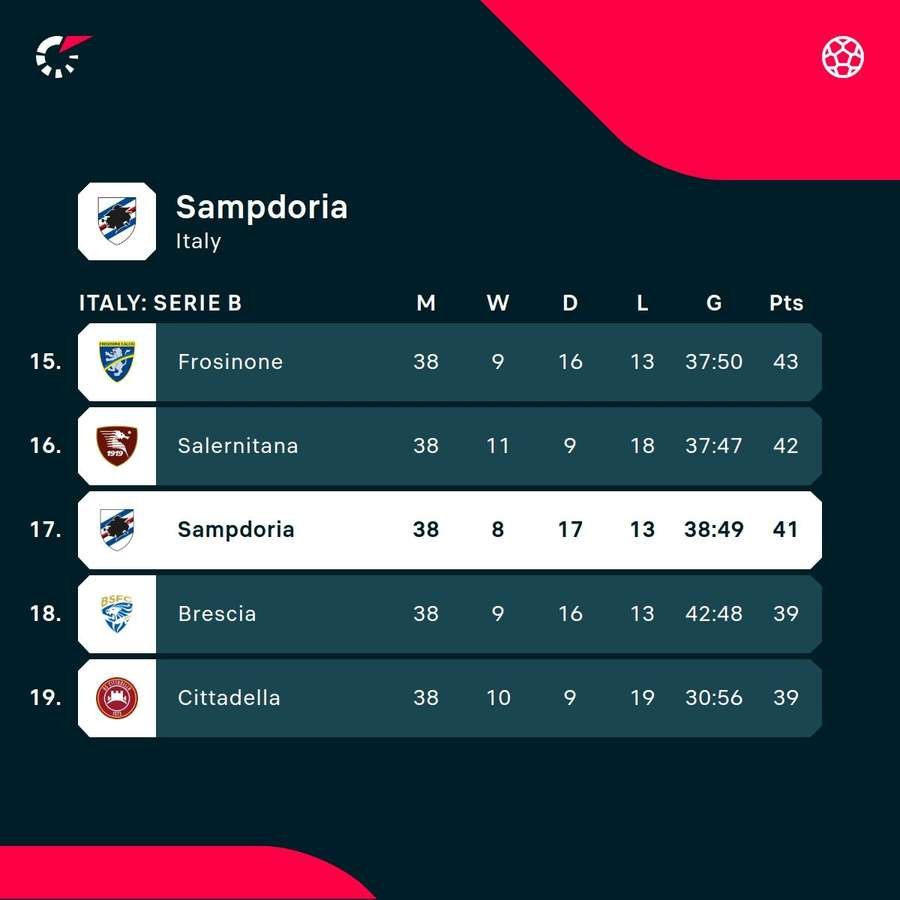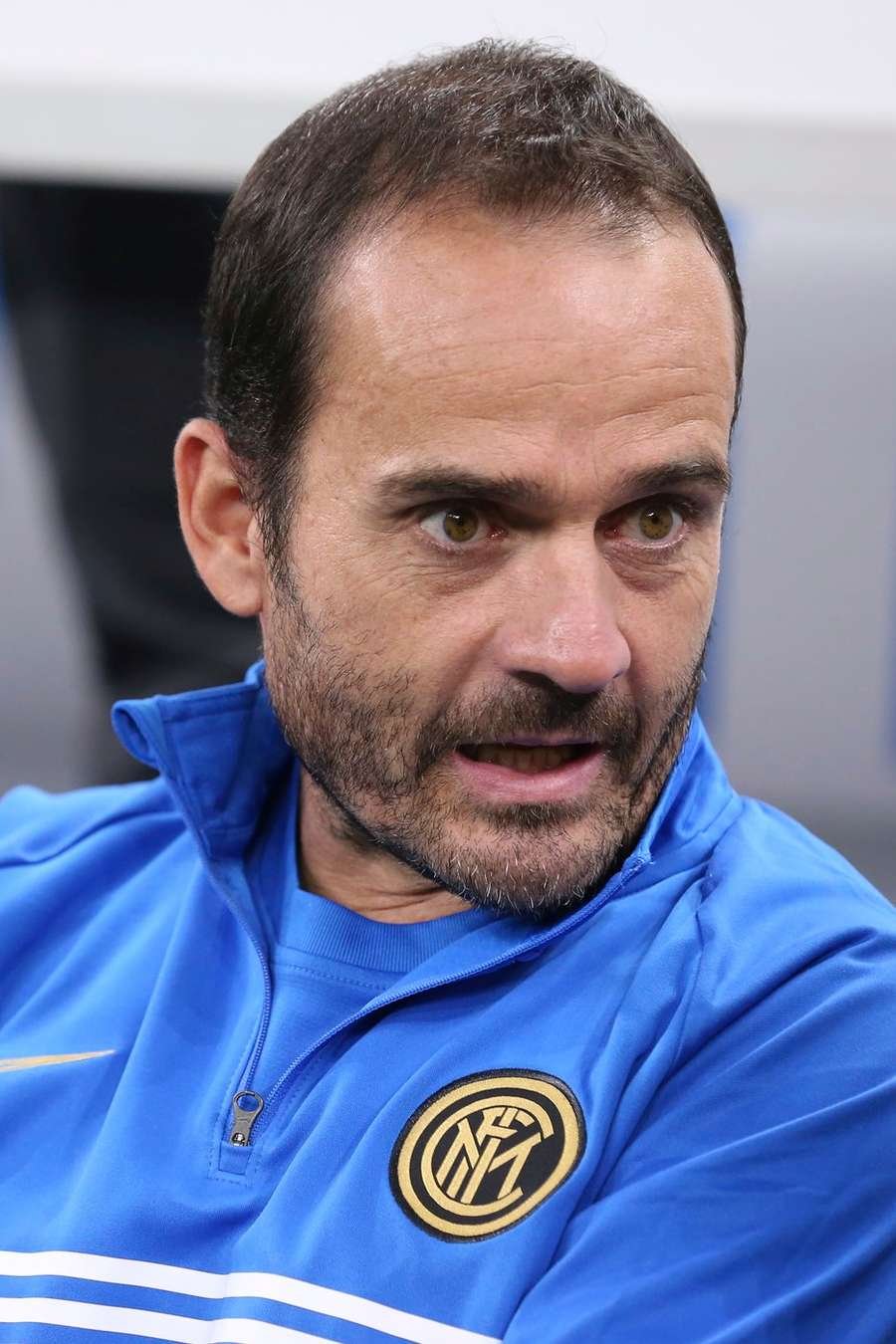In this piece, we delve into the second segment of an interview that Sergio Levinsky held with Julio Tous, Barcelona’s fitness coach. In this segment, he reflects on his experiences working alongside Antonio Conte at Chelsea and Juventus, his time with the Italian national team, and much more.
You have had an extensive career across many clubs as well as with the Italian national team. How does it feel to see Sampdoria relegated to Serie C? (This interview took place prior to Brescia’s administrative demotion, which gave Sampdoria the opportunity to compete in the relegation playout against Salernitana)
“It has been quite difficult because I believe everyone invests a piece of their heart in every club they work at, regardless of the circumstances. Just the other day, I stumbled upon an article that brought me to tears, reminiscing about that incredible environment in Bogliasco and the beautiful regions of Liguria leading up to the Cinque Terre. I found myself thinking, ‘I can’t believe Sampdoria has gone down.’
“Plus, I had a close friendship with the physical trainer, Paolo Bertelli, who was with (Andrea) Pirlo at the beginning of the season. We worked together for several years, fostering a strong bond. The reality is, it’s been a tragedy for Sampdoria. For me, it was always a distinguished club, and they treated me incredibly well.
“In fact, I must acknowledge that Sampdoria laid the groundwork for my subsequent journey. It was at Sampdoria that director Marotta, who later moved on to Juventus, initially took me to Juve and eventually to Inter. It’s amusing how that successful model we began at Sampdoria transitioned to Juventus. Later, I joined the national team under (Antonio) Conte.”

Flashscore
“They adopted that successful model at Sampdoria and then Marotta transitioned to Juventus, where he further developed it, and now he’s at Inter replicating the same approach. It’s fascinating observing how this cycle of success keeps repeating, isn’t it? Sampdoria had him leading them into UEFA competitions with excellent results, followed by Juventus dominating with nine consecutive Scudetti, while Inter has emerged as a leading team in recent years.”
‘My first year at Juve was the one in which I was under the most pressure’
You worked with Antonio Conte at both Juventus and the national team. What was that experience like?
“Initially, my roles weren’t full-time; they were typically seasonal, aimed at kick-starting pre-season preparations, and I would reappear periodically.
“These temporary jobs yielded positive outcomes, but they also highlighted that being present every day is crucial for effectively addressing any issues that arise. When I joined Juventus, I encountered Conte, who had returned to the club after previous tenures at Bari and Atalanta.
“He came back to Juve amidst immense pressure after they finished seventh consecutively. Juventus had endured a stint in the second division, and I distinctly recall that first season — while I wouldn’t say it was hellish, it was undoubtedly the most pressured moment of my career.
“The imperative to deliver results was palpable, and everything had to proceed smoothly. Naturally, the coach felt that pressure particularly acutely as a dedicated Juve fan, and it was a prime opportunity for him. We had to navigate those challenges as best we could.
“Then, we encountered an extraordinary phenomenon — finishing the season unbeaten. That had never occurred in Italy before, with 43 matches without a loss, the only defeat being in the cup final against Napoli. When you experience that, it alleviates all the stresses and you tend to forget the hardships.”
‘I’ve never seen a celebration like that of my first Scudetto in Turin’
Can you describe the contrast between the intense pressure of the season and the joy of the ultimate celebration?
“I’ve never witnessed a celebration quite like that, although Napoli’s recent victory was emotional, the joy we experienced in Turin when they won their first Scudetto was unbelievable. I was completely taken aback and moved. The streets were filled with people celebrating, having waited what felt like a decade without a trophy, which were taken from them due to Calciopoli.
“This was sheer liberation — a profound catharsis. Naturally, we also felt that sense of relief because we had been the underdogs. Ultimately, everything turned out incredibly well.
“That triumph laid the groundwork for Juventus to truly reform their squad, which consisted of several world champions at the time. I recall players like Luca Toni, (Vincenzo) Iaquinta, and Fabio Grosso who initially didn’t fit the coach’s plans, but progress was made to rejuvenate the team.
“In the second year, (Paul) Pogba and Arturo Vidal were brought in near the end of pre-season, bolstering the squad further. The climax of our three years together was having (Carlos) Tevez and (Fernando) Llorente share striking duties, with both having phenomenal seasons.
“If memory serves, Tevez netted around 20 goals while Llorente scored 17 or 18. That year was the epitome of success, including amassing 102 points, a feat I doubt has been eclipsed since in any major league.”
During that second year, did the pressure feel markedly different?
“Indeed, it was less intense. Pressure always exists under Conte, but compared to that first season, it felt like a relief. I remember that pre-season in Bardonecchia; it was almost like we were under siege with fans everywhere, creating a tense atmosphere. The pressure was undeniable.
“After going through that, I’ve come to realise that any challenges I face thereafter seem much easier in comparison.”
‘The Premier League is different to other leagues’
Reflecting on your time at Chelsea, I recall Victor Moses expressing high regard for you after your successful season there…
“It was an extraordinary experience because Chelsea is an exceptionally unique club, and the atmosphere in the Premier League is something else entirely compared to the other leagues where I’ve worked. Those urban stadiums surrounded by pubs, packed with fans celebrating, is a different world — games at 15:00 or 16:00 fuel a joyous vibe, and while not everyone is inebriated, there’s an undeniable happiness. Post-match festivities feel like a ritual that captures you.
“The atmosphere at Stamford Bridge was magical, which significantly contributed to our success. The club itself is well-structured, operating under a distinctly American approach — the chairman Bruce Buck was a seasoned lawyer from New York, and it felt more like an NBA franchise than a traditional football club.

ČTK / AP / Jonathan Moscrop
“We were able to engage with players right from the start, who had come from a rather unusual situation.
“They won the league two seasons earlier and did so in style with Mourinho, only to end up tumbling to 10th place the following season. After parting ways with Mourinho, they brought in Hiddink, and it was a total disaster. Being such a formidable club, they fell out of contention for any significant titles and were out of European competitions. Hence, it was a relief to focus solely on the league.”
‘That Chelsea team was a great squad’
“Training elite athletes systematically week in and week out simplifies your workload; you only need one or two days off to maintain efficiency. Of course, there are external variables such as superior opponents.
“In Chelsea’s case, we had phenomenal players like the gifted (Eden) Hazard and Diego Costa. Imagine having Cesc Fabregas, a key contributor with over 10 assists, occasionally coming off the bench!
“Also, (N’Golo) Kante, the league’s standout player, (Nemanja) Matic, David Luiz in defence, and Thibaut Courtois between the sticks — it was a remarkable squad. We ended up winning the league comfortably and made it to the cup final, which we lost on penalties in what I believed was an unjust decision. VAR was not in play, so we fell short of the double, but it was an exceptional year, as we were able to optimise our training and players like Victor Moses turned in stellar performances.
“We could meticulously manage recovery times and workloads; with such quality players available, those results were somewhat expected. Of course, had we been working with less talented players, achieving that level of performance would have been a different story. Let’s not forget, it was Guardiola’s inaugural season at City and Mourinho’s at United, and the league was essentially a race between those two, yet we triumphed.”
You’ve also been involved with the Italian national team, which is currently dealing with a crisis after missing out on two World Cups. What’s your take on this?
“It’s always tricky to provide insights on these matters, but we must remember that Italy were also crowned European champions recently. It’s quite astonishing — a true outlier nobody saw coming. They emerged as champions, and at least Chiellini and his teammates experienced that glory.
“Reflecting on the quality of the squad, the 2006 Italian team was remarkable. I had the chance to work with many players from that era, and they were not only exceptional athletes but also extraordinary individuals.
“Players like (Gianluigi) Buffon, (Alessandro) Del Piero, Pirlo, (Andrea) Barzagli, Fabio Grosso, and Luca Toni, Iaquinta — I had the pleasure of working with all of them, and I could understand exactly why they became world champions.
“The national team was truly something special. Recall their silver medal performance against Spain in the European Championship, where they were defeated 4-0, leaving them very disheartened as they had recognised Spain’s progression. However, they managed to overcome Spain in the tournament, which felt bittersweet for me. I was there with a team that I had been with for five years, forming the backbone of the national squad. Their lack of continuity might resonate more with generational cycles, much like the fate of the Spanish national team.’
‘Conte is one of the biggest winners I have ever known’
Speaking of Conte, what stands out about him in your experience?
“He possesses an uncontainable passion for football and an unwavering desire to win. In my view, he’s one of the greatest victors I have ever encountered. Of course, that boundless enthusiasm can sometimes be challenging to endure. Yet as the saying goes, when you’re winning, all is well; but the moment you lose, it’s better to stay hidden.
“Ultimately, his career accomplishments speak volumes, especially his success with teams that, at the outset, were considered long shots — truly remarkable feats. If I were to encapsulate him in a single word, it would undoubtedly be ‘winner’. He’s a winner who seems to be just on the cusp of another Scudetto (this interview was conducted before he led Napoli to win the Italian championship).
Finally, how would you describe yourself, Julio Tous?
“I’m continually on a journey of self-discovery. Nevertheless, I would say that despite my age and having navigated various ups and downs, I’ve never lost my drive to push forward, nor my enthusiasm.
“I believe that maintaining enthusiasm is crucial for any professional or individual, always striving and looking ahead.
“I once learned from several architects that the longevity in their profession often comes from the fact that they never stop designing until they pass away. Many accomplished architects continue working well into their 90s because they always have a project to pursue.
“For me, having aspirations and objectives is critical to life’s zest, and without them, one can easily run into challenges. I view myself as an enthusiastic individual who is always eager to learn and progress, as my curiosity drives me — I have a love for diverse subjects and an unquenchable thirst for knowledge.”
Compiled by SportArena.com.au.
Fanpage: SportArena.com.au.
LiveScore – Live Sports Results & Odds.




